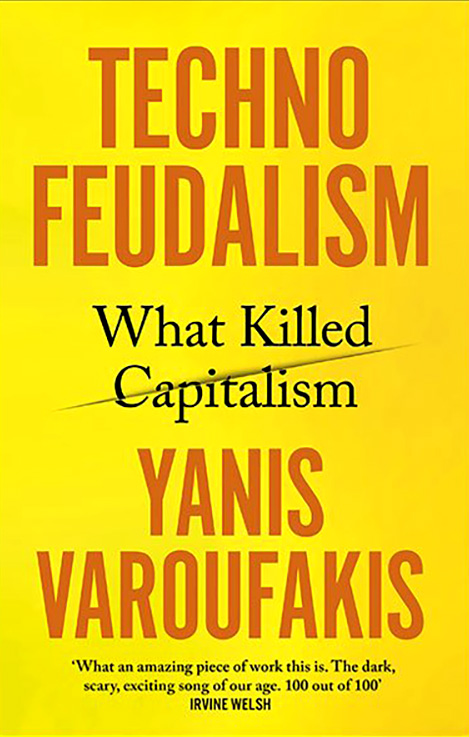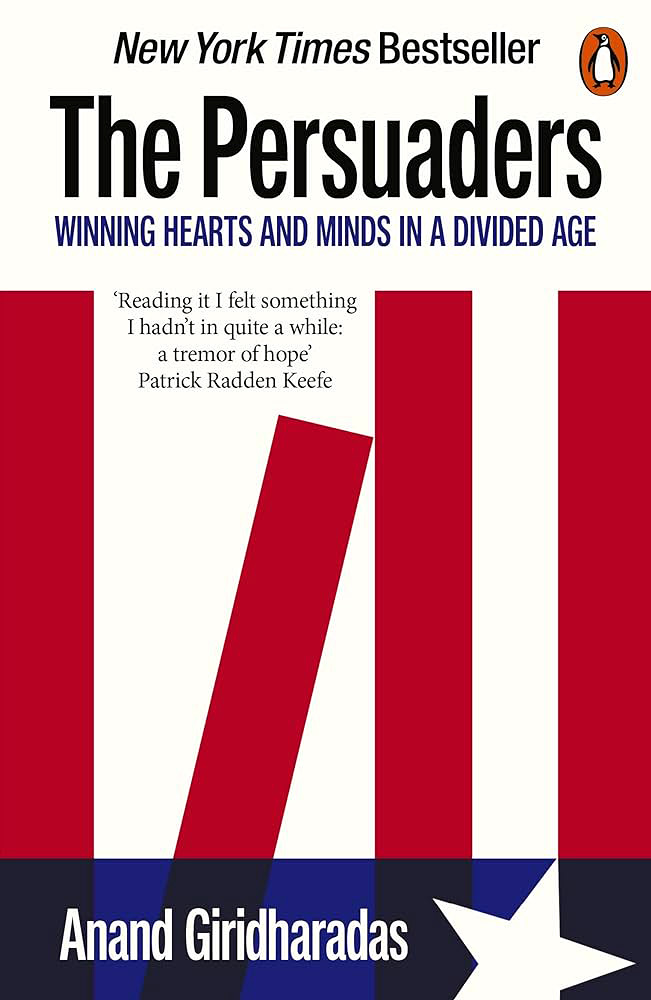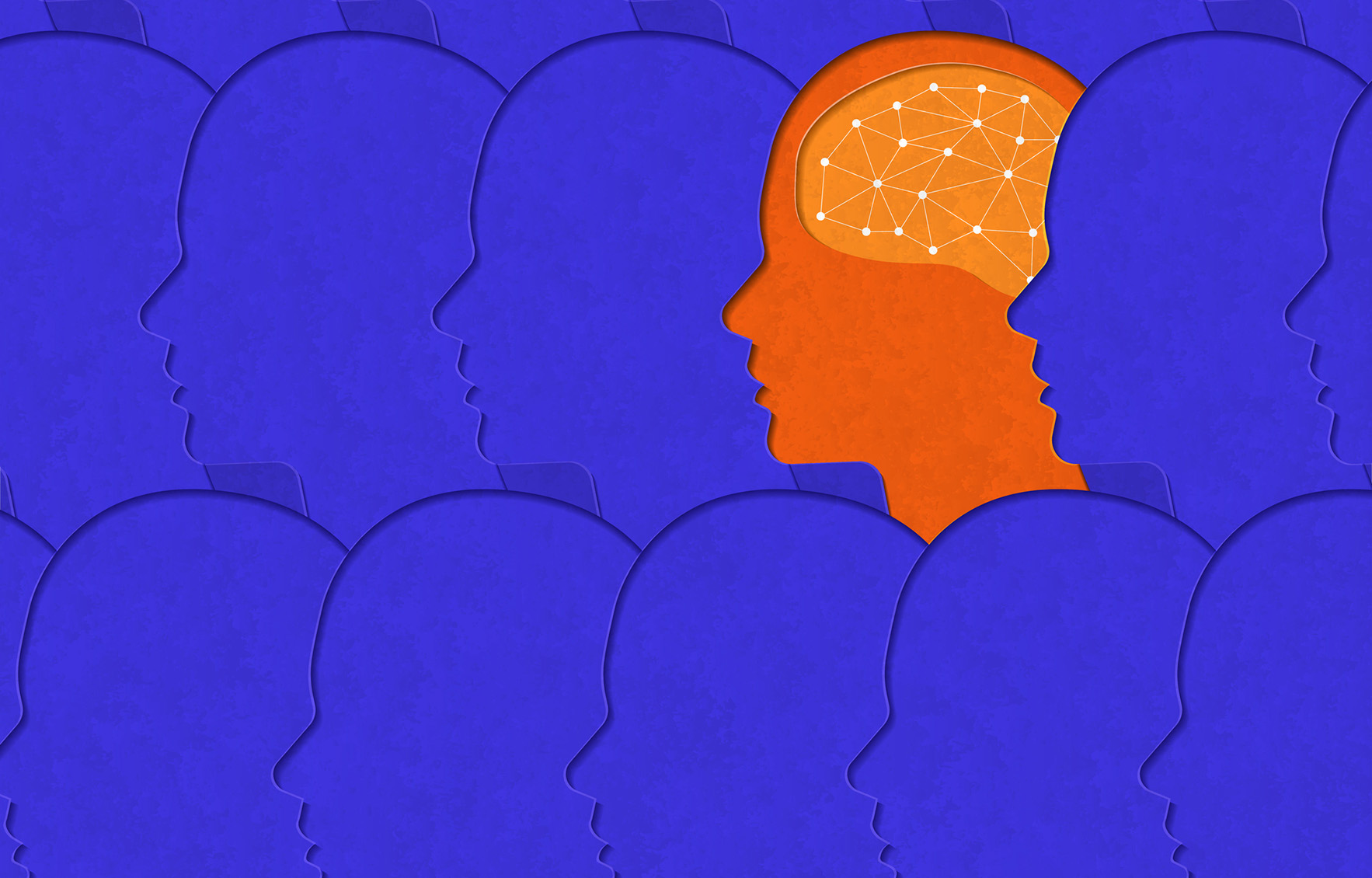As a spring heatwave brings record temperatures to Gauteng, a so-far relatively gentle harbinger of the ravages global heating will bring, it’s a reminder that concerned citizens of South Africa started to learn to think differently, because that may be the only way we are going to begin to act differently in a time of chronic poly crisis and societal impotence as to how to get beyond it.
This thought came to mind, as I embarked on Greek intellectual and economist Yanis Varoufakis’s latest book, Technofeudalism: What Killed Capitalism, where he quotes the increasingly familiar mantra that “it’s easier to imagine the end of the world than the end of capitalism”, an argument rehearsed again a few months ago in an opinion by two Earth Life activists in the opinion pages of Business Day.
But, of course, ignored – proving their point.
 (Image: Amazon.sg)
(Image: Amazon.sg)
This is despite the crises mounting and the obvious fact that the economic system of capitalism is floundering. Varoufakis goes as far as to argue that it has ended, but been replaced with something even worse. There are alternatives that can work. Much serious thought, for example, has been given to the idea of economies based on advancing well-being rather than increasing GDP.
Let’s put it another way: If we don’t make the personal changes that are needed to mitigate the climate crisis, and force our governments and big companies to make the political and economic changes, they will be forced on us by mother nature herself, in the same way that the minuscule SARS-CoV-2 disrupted our lives and behaviours in profound ways. Except the climate crisis won’t mutate, like Covid, into a hopefully harmless variant that allows us – after a couple of years and 15 millions deaths – to resume our profoundly self-destructive ways.
We have pre-programmed an increasing virulence to global warming.
Breaking the paralysis of South African politics
But learning new thinking, or perhaps learning to think, again (by which I mean reclaiming our ability to think independently), is not just something we need in relation to the climate and capitalism; it’s something required in almost everything we look at, and particularly when we engage with the politics of our societies.
A few years ago, it took a revolution in gender and identity politics to move away from the binaries of he and she, to they and us, and a spectrum in between (LGBTQI). Now a similar shift is needed to get us away from the artificial binaries that blight our understanding of politics, each other and social change.
For example, as we contemplate the vital general elections in 2024, as we start to campaign for the restoration of accountable government, if we are to make informed choices when we vote, then we have to escape the binary of DA bad, ANC better (but still bad), or ANC bad, DA good, to something in between.
 (Image: Amazon UK)
(Image: Amazon UK)
In his most recent book, The Persuaders, Winning Hearts and Minds in a Divided Age, Anand Giridharadas probes at these questions. He quotes a gender activist asking herself: “When fighting for justice and change, how do you bring others along – those who are not there yet, and those who are actively complicit? In the movement to end oppression, is there space for imperfect allies? How imperfect is too imperfect? Do people who are part of the problem have a place in the search for solutions?”
Transposing this into our context, how do we think, again.
Our government may be corrupt and incompetent in many parts, but not in all parts, so why tar all the people within it with the same brush?
The DA is not all bad. It got 3.6 million votes in 2019, many of them poor and working-class people in coloured communities. Ironically, more than any of the socialist parties!
The EFF has a leader who is a proto fascist, but many of its members are young people drawn not to fascism, but to transformative (radical, if you wish) change. And who would question that in a country as blighted by poverty and inequality as ours that the system needs to change?
Our government may be corrupt and incompetent in many parts, but not in all parts, so why tar all the people within it with the same brush?
And so on. And so on. Think again, and the opportunities for social justice might look brighter.
Read more in Daily Maverick: South Africans just wanna have fun (and fix the country)
The same thought processes should be applied to what is happening internationally.
The opposite of “the Israeli Defense Forces equals very evil” is not “Hamas equals good”. The IDF has state power, unlimited money and American permission. On the other hand, Hamas is anti-democratic, oppresses women, and allies with theocracies like Iran. The calculus of evil clearly falls on the genocide of the IDF. But between these two extremes, there are a lot of people simply looking for a way to peace, security and social justice.
Put bluntly, people gravitate to evil when good people can’t get their shit together.
Donald Trump may be a maniacal megalomaniac, but many of those who wear MAGA caps are alienated working class, who once upon a time would have swelled the ranks of the Wobblies. I mean it when I say that while there may be inseparable miles between Trump and independent socialist senator Bernie Sanders, there need not be inseparable miles between their supporters.
Activists in particular need to start to think, again, because the way we are thinking and acting at the moment prevents us from building power and affecting change. In every way our ability to rescue society, to build alternative systems in which people can flourish again, depends on building bridges. The theatrics of the politically correct – even when they are correct – doesn’t build power. Polarisation between people who have more in common than they would ever think, only serves the elites.
Put bluntly, people gravitate to evil when good people can’t get their shit together.
This is why we must learn to think again. Wrest back control from both social media or traditional media, that wants to do our thinking for us.
From now on we must learn how to build things up, not just knock them down; to look inwards and ask questions of ourselves as much as we look outwards and ask questions of others. DM




 (Image: Amazon UK)
(Image: Amazon UK) 